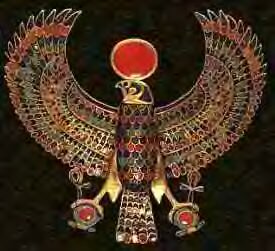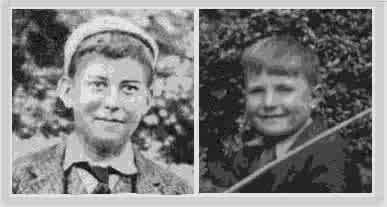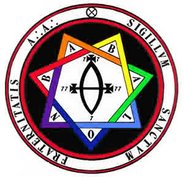Of Thelema

I received a message off this link from a person with a background in Taoism who is interested in information on Thelema and Aleister Crowley. Rather than attempt an explanation here I'd like to direct readers to the "knowledge based link list" in the sidebar where there are extensive resource materials related to Thelema.
I first got interested in Thelemic teachings when I was in my late teens. At a later date I discovered that I had a few things in common with Aleister Crowley. I have a Christian “latency” in my make-up as a result of my upbringing, as did Crowley. This latency relates to childhood experiences in which Plymouth Brethren doctrines relating to sin and damnation played a large in early psychological and emotional conditioning. Like Crowley, I secretly rebelled against the stultifying and life-denying doctrine of the Plymouth brothers, and during Sunday school classes began to find Jehovah's adversaries, both human and spiritual, much more intriguing than the Patriarch-in-the-sky, or "Old Nobodaddy" as William Blake dubbed him.
Despite my early rebellion, the fear and guilt instilled in the psyche at a young age is challenging to shake. Though I embrace Thelemic teachings and have worked also with other methods, I have been unable to entirely exorcise all traces left on me by this early exposure to evangelical propaganda. The guilt complex and the blood of the lamb went hand-in-hand; the conviction of being "sinful" and a pilgrim in a vale of tears once fixed in the emerging consciousness of the child, evokes a peculiar sense of alienation almost by default. The young Aleister felt alienated in this way (particularly during the boarding school years), and I am not wholly convinced that his courageous rebellion and the astounding path he opened through his magickal endevors, entirely eradicated the early psycho-emotional damage created by exposure to fundamentalist Christianity.
I became aware of Aleister Crowley in my late teens when a friend gave me a copy of the The Great Beast. Over time I became aware that I had a number of things in common with Crowley. Like Crowley, I was born in early October; we are both Librans with Leo ascendents and Moon in water. He was raised in a small evangelical sect called the Plymouth Brethren, as I was. He was sent to UK boarding schools at a young age, as was I (at age seven). His father, although a wealthy merchant, took to wondering the highways and byways preaching the gospel of Jesus. My father was an evangelical missionary in West Africa and my uncle a preacher. The latter went down to the Republic of Ireland to “save” Papists, and held impromptu open-air revival meetings. He was often beaten up and chased.
I have to say that when I had these connections pointed out to me I was less than impressed. Crowley isn’t a man who is easily understood or loved, and at first I viewed him with a good deal of suspicion. It has taken time and effort to penetrate his ideas, and to fully appreciate the extraordinary power of his revelation.
As for politics, Crowley was an arch-conservative. This often comes as a surprise to those on the left who view him as a counter-culture hero (as indeed he was and is). However he was never a "man-of-the-people" in the socialist sense, and had a strong penchant for grand titles and influential connections. When he did dabble in politics, his affiliations were seen as bizarre and even traiterous. For example during World War 1, during a soujourn in the USA, he wrote German propaganda for a pro-fascist publication named The Fatherland. On his return to England there were cries for his head. His motivations for this activity were complex and counter-espionage has been cited by way of explanation, but nonetheless he was viewed in certain official quarters in the UK as a traiter of the worst kind.
Crowley was also suspected of covert nazi sympathies in WW2. These suspicions derived mainly from mistaken views about the nature of Crowley's connections with occult groups in Germany. Such suspicions were hardly surprising - it should be remembered that many in aristocratic and even royal circles in the UK, were sympathetic to the Germans during WW2. News of the systemic attempt to wipe out European Jewry didn't surface with any credibility until after the war and the opening of the camps. Facts with respect to the conduct of the SS when dealing with civilian dissidents and captured enemy fighters, weren't fully established until witnesses came forward and evidence was produced.
People with occult sympathies tend to make poor politicians in my experience. Politics after all requires a basic grasp of pragmatic realities and a partisan approach. This is a box that complex, philosophical types tend to rail against, and certainly Crowley exhibited all of that in his eccentric outings on behalf of this or that political cause. For example his pro-Irish Republican sympathies arose more from an identification with the celtic mythos and his alienation from the British establishment, than it did from any genuine sense of solidarity with Irish Republicanism per se. He viewed politics through the prism of his own particular mythos, and very few understood where he was coming from - especially with regard to his fascist affiliations in the States.
In order to understand Aleister Crowley it is essential to get beyond the anecdotal reports. He was targeted by the yellow press of the day and many outlandish stories were fabricated about his activities. He was a complex individual and his motivations weren't always self-evident to those with a more down-to-earth view of life. He was certainly dramatic and given to grand gestures. This personality trait is precisely what grabbed attention in a post-Victorian society that was rigid and highly conformist.
Al and yours truly in Plymouth Brethren hell (that stick was a "sword" I used for battling a hated neighborhood kid).




